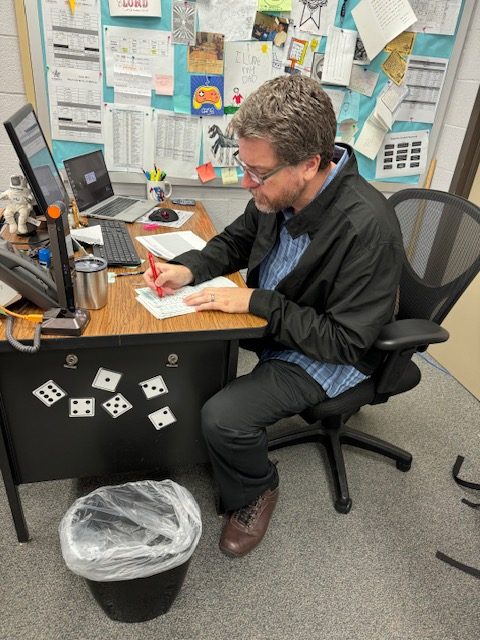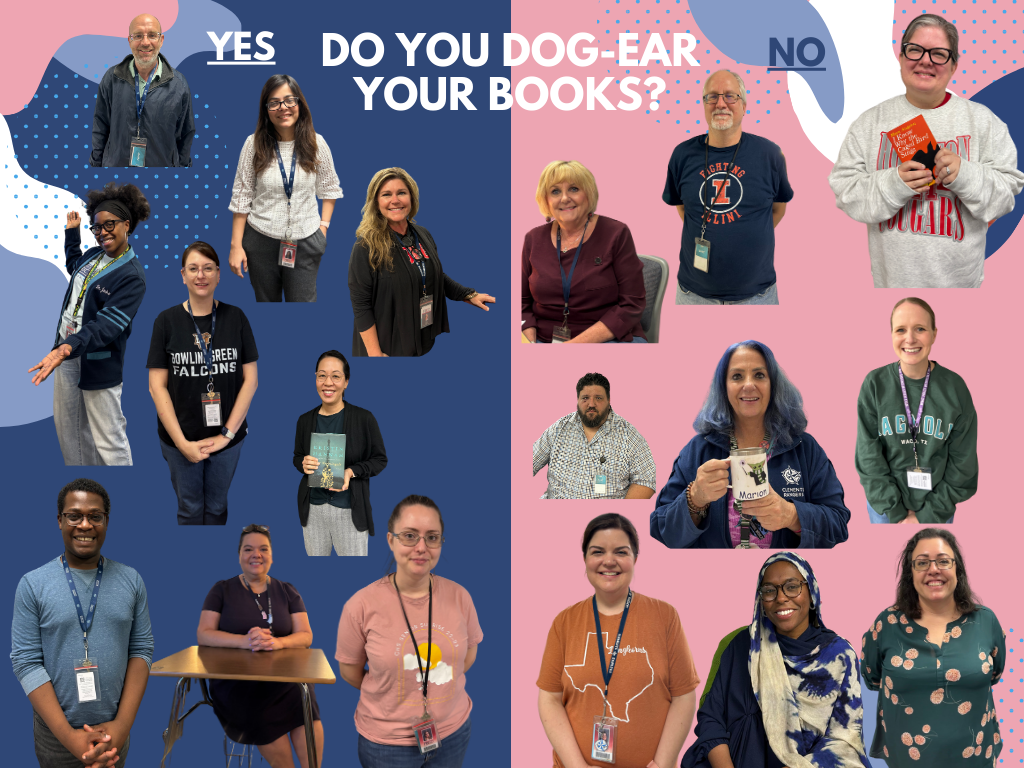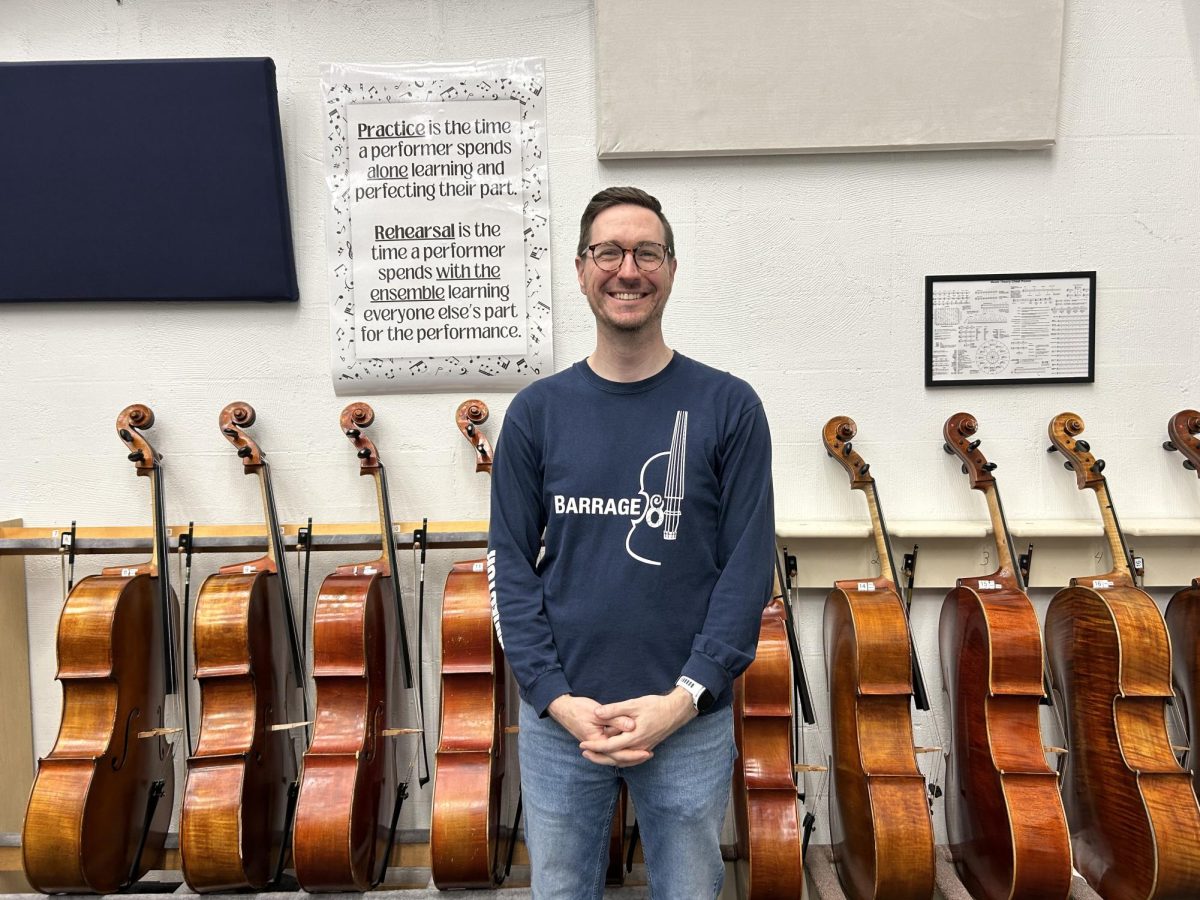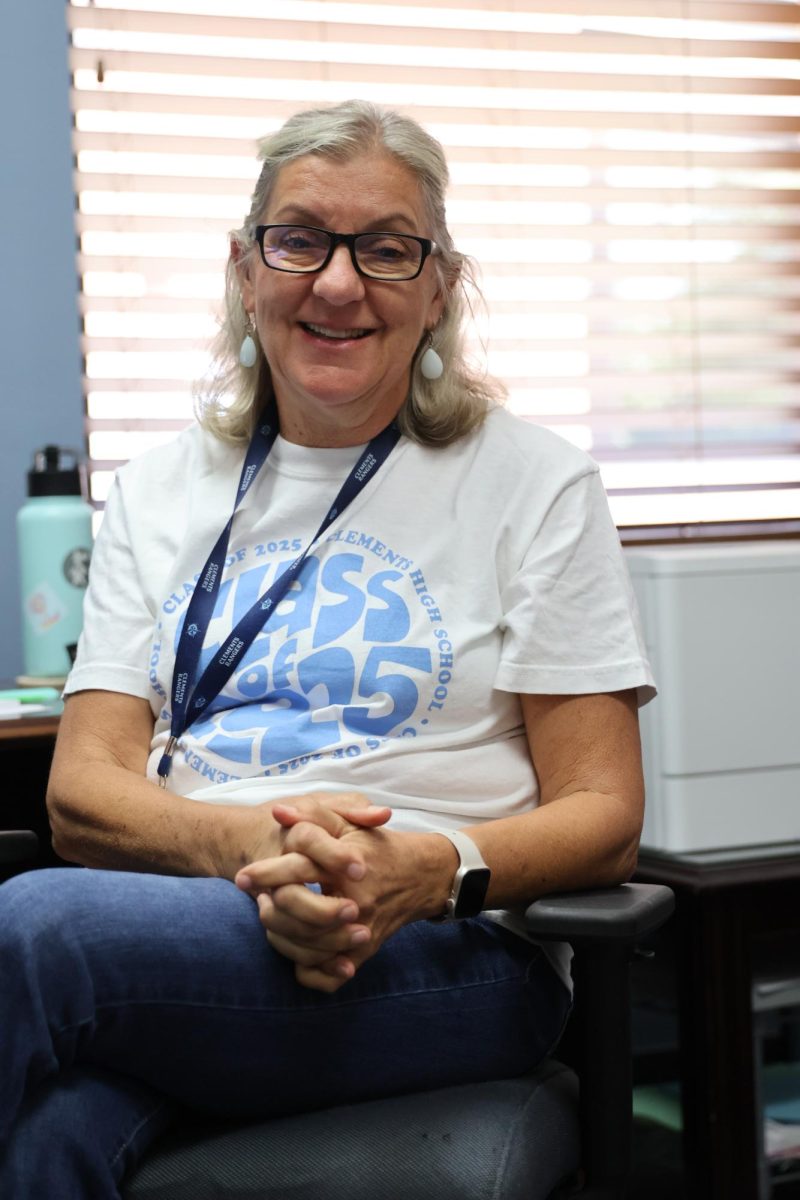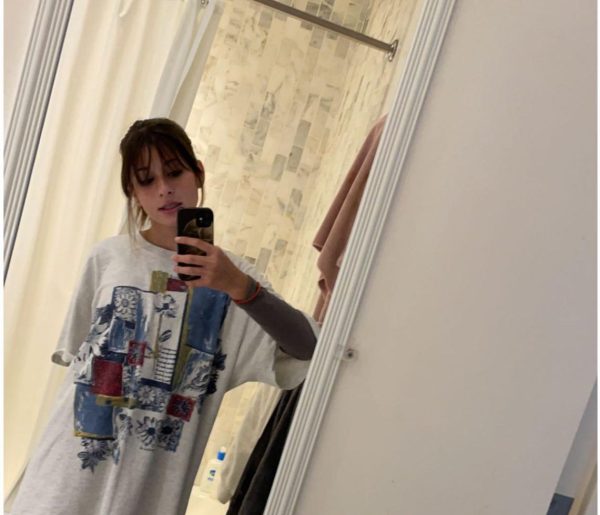Computer science teacher Bobby Goodman goes into detail on how he decided to become a teacher and got into computer science. He gives advice for any other students interested in computer science and shares stories of his years teaching.
Q: Why did you decide to go into computer science?
A: One day in history class, we were reading in the Weekly Reader how some 12-year-old had written a program for a phone and gotten a million downloads using some online tool to make video games. So I thought, if a 12-year-old can do this, I can do this. So, then I started learning how to do it [while] I was teaching middle school kids electives.
I did a gifted and talented program over the summer and I taught them some board game design and game design, and I decided I really liked it, so I made it an elective in our middle school. Then I decided I was tired of history, I needed to do something else. I was asking the school and the principal, “I want to switch to computer science. If I get my credential in this, can I teach computer science?” And they were just not interested. So I thought well, I’m going to go somewhere else then. So then I found a job in Texas, and they were happy to have me teach computer science.
Q: Did you always want to go down the teaching path?
A: No. When I was younger, I didn’t think about teaching at all. I thought about teaching once I got into college. So, when I was your age, I wanted to be a jet fighter pilot. And I was planning to go to the Air Force Academy. But then I found out I couldn’t see very well, and I was a little bit color-blind. So, then I started trying to find something else.
Q: What is your background in computer science?
A: I’ve always been doing a little bit of computer science. When I was a kid in high school, I learned an old language called BASIC and I had a computer class, an intro computer class. Then when I was in college, that was when the internet was first coming out, brand new. So, I took a few courses on that, understood the basics of how to write internet code, HTML and stuff like that. And then I just kind of kept a little bit on the side. When I was teaching in junior high, I started teaching electives and so I started doing game design courses.
Q: What does a normal day look like in your class?
A: I always have the SMART Board with some sort of starting directions, and usually it’s some short activity to get kids into whatever lesson we’re gonna look at. Maybe it’s watching a little film or doing some activity or looking, probably a review from the previous day or something like that. Then I’ll teach them a lesson on whatever particular technique or skill we’re going over for that day, and I’ll show them on the SMART Board how it works, maybe some code examples and things like that. Then, we get on the computers and let them try and practice with it, making their own code. So it’s a hands-on course for at least half of it.
Q: How do you teach Computer Science?
A: You have to show them the model of how it’s built and kind of walk through the logic. But the most important part is probably them doing it. Most of what I learned about computer science was just from doing it. Say I want to build this: how does it work? And you look at all this stuff and you don’t really understand it until you build it yourself. So it’s the same way with the kids – you just got to give them kind of time and direction and say, go make this.
Q: What do you enjoy most about teaching computer science?
A: I tell the kids that I’m not interested in any of this unless you can make a video game out of it. I just like games. I like the stuff where we get to be creative and do things like that. Some of it is a little more mathematical and it’s a little drier, but the stuff where we’re making graphics and animation and putting together some sort of program and we can make a game out of it, then I’m having fun.
Q: And what advice would you give students interested in pursuing a career in computer science?
A: Well, Clements has a stellar program. So if you really want to do computer science, you should be taking these classes, especially if you can get up to the higher level classes with Mr. [Joshua] Fugel and Mrs. [Lubna] Lorena. They totally know their stuff. They are connected to the universities around here. They’ll write recommendations for students and you can definitely, if you have the skill and the desire, get into those programs through our program.
Q: And any challenges while teaching?
Well, this year was very challenging because I had to learn a new language, Java. I learned two languages in the last two years because over the summer I learned Python and then I had to learn Java. Before, I had known JavaScript and C-sharp, so that was a challenge.
Q: Do you have any memorable stories or moments from your time teaching?
A: When I was teaching that middle school class, we were at a small school. It was a school of choice, where it’s not part of a district, the parents are more involved and decide what we teach. We had a lot of kids, like Clements that are high level as far as ability and stuff and we’re doing kind of really interesting things.
In our computers class, we were doing that sort of stuff and there was like a tech startup that was working in the early days on what was called augmented reality. We were also right in the middle of town and we had this brand-new library built. And in that library, they made a room and all the walls were video screens and it was made so it could be immersed inside of some sort of thing. The first thing they started doing was doing Google Earth and they would project that to all the windows around you so it looked like you were there.
They wanted to experiment with this augmented reality in that room at the library and this startup company came down to do it. They came in and they interviewed us, they had cameras, they interviewed the kids, and they put this all in some sort of TV program for South Korea. So I might be famous in South Korea too because there’s this TV program with me and my kids in it.
This interview has been edited for clarity.

